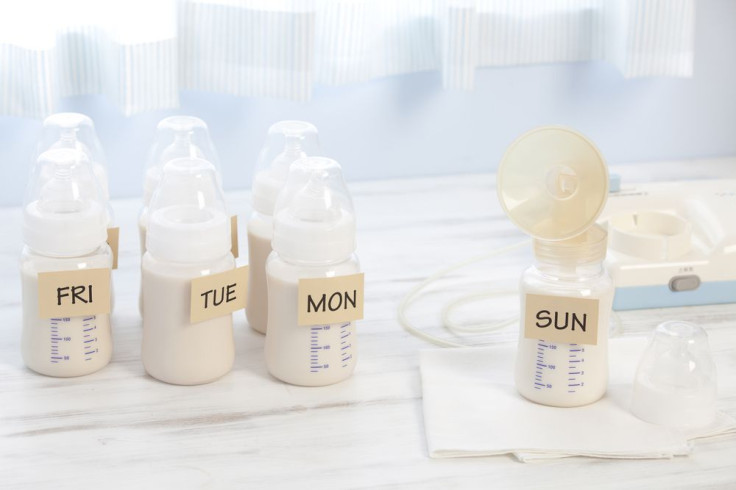Human Breast Milk Bought And Sold On The Internet Poses A Serious Risk For Infants

Picture this: You’re in the market for human breast milk (for whatever reason) and you stumble across a website offering their product for $1 to $2 with no strings attached compared to $3 to $4 from a regulated milk bank that will only ask questions. In this same situation, it seems most people opt for the less expensive breast milk. A report published in The BMJ has revealed that websites facilitating the buying, selling, and donating of human breast milk are putting babies and adults at great risk.
"Milk bought online is far from an ideal alternative, exposing infants and other consumers to microbiological and chemical agents," the authors said in a statement. "Urgent action is required to make this market safer."
Researchers led by Sarah Steele, a lecturer at the Global Health, Policy and Innovation Unit at Queen Mary University London, called the emerging market for unregulated breast milk “dangerous” and said it's “putting infant health at risk.” To compete with regulated milk banks, human breast milk sellers on the Internet cut costs by avoiding pasteurization, testing for disease and contamination, and the appropriate method for collection, storage, and shipping.
The research team cited previous studies showing that human breast milk purchased over the Internet has a substantial amount of bacterial growth caused by lack of pasteurization as well as poor shipping and storage practices. For example, one study found that only nine out of every 101 breast milk samples purchased online did not have bacterial growth. Another study revealed that 25 percent of breast milk samples were no longer frozen, delivered with poor packaging, and contained drugs and other substances.
Although human breast milk websites are clearly frequented by new mothers who are either unable or unwilling to breastfeed, they’re not the only ones prepared to explore shady avenues for their calcium fix. Online breast milk sellers also garner the attention of bodybuilders, cancer patients, and people with outlandish fetishes. Unfortunately, most of these people fail to realize their purchase is not screened for infectious diseases, such as hepatitis B and C, HIV, and human T cell lymphotropic virus and syphilis.
The sale of unregulated human breast milk is particularly a growing concern in the bodybuilding community. Some avid weightlifters even liken breast milk to the new post-workout supplement. Opportunistic mothers with extra breast milk on hand have taken advantage of the newest weightlifting trend by offering their product for discounted prices on Craigslist when compared to more legitimate sources. Researchers from this study call for national organizations to provide quality information, advice, and guidance for purchasing breast milk and legally regulating safe collection, processing, and shipping.
Source: The BMJ. 2015.



























